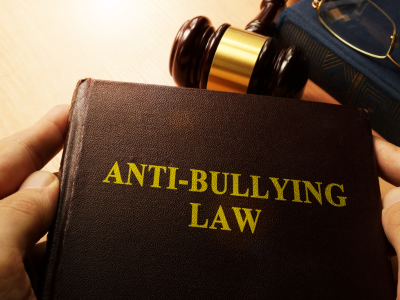Bullying in schools is a serious concern that affects the well-being and mental health of students across the globe. In Canada, authorities and legal frameworks have taken significant steps to combat bullying through a series of comprehensive anti-bullying laws and policies. In this blog, brought to you by Rogerson Law Group, we will delve into the landscape of anti-bullying regulations in Canada, focusing on the critical aspects of tackling bullying in schools.
Understanding Bullying in Canadian Schools
Bullying in Canadian schools encompasses various forms, including verbal, physical, social, and cyberbullying. Recognizing the urgency to address this issue, the Canadian government, along with provincial and territorial authorities, has implemented a range of legal measures to protect students and promote a safe learning environment.

Key Anti-Bullying Laws and Policies
1. Bill 13: Accepting Schools Act: Passed in 2012 in Ontario, this act mandates that all publicly funded schools implement comprehensive anti-bullying policies and establish support for students who have experienced bullying. The law also emphasizes the importance of creating inclusive and accepting school environments.
2. Cyberbullying Legislation: Canada’s Criminal Code has been amended to include provisions against cyberbullying. It’s now a criminal offence to distribute intimate images without consent, and this legislation also covers online harassment that causes significant emotional distress.
3. Provincial and Territorial Laws: Many provinces and territories have enacted anti-bullying laws and policies that address various aspects of bullying in Canadian schools, including prevention, intervention, and reporting mechanisms.
Components of Effective Anti-Bullying Laws
1. Clear Definitions: Anti-bullying laws provide clear definitions of bullying behaviours, ensuring that schools, parents, and students understand what constitutes bullying.
2. Preventive Measures: Effective laws emphasize prevention through educational initiatives, awareness campaigns, and the establishment of safe spaces within schools.
3. Reporting Mechanisms: Laws require schools to have clear procedures for reporting bullying incidents. This empowers students, parents, and educators to take action against bullying.
4. Consequences and Interventions: Anti-bullying laws stipulate consequences for perpetrators and emphasize the importance of timely interventions to address the behaviour and support victims.
Rogerson Law Group’s Role in Bullying Prevention
As a legal entity deeply committed to advocating for justice and safeguarding individuals’ rights, Rogerson Law Group recognizes the significance of robust anti-bullying laws. Our legal experts guide families, students, and schools, ensuring you understand your rights and responsibilities under these laws. We offer assistance in addressing bullying-related issues, whether through legal advice, mediation, or representation.
Canadian anti-bullying laws and policies reflect a collective commitment to creating a safe and nurturing educational environment for all students. The legal framework encourages schools, parents, and communities to work together in preventing and addressing bullying. As champions of justice and equality, Rogerson Law Group stands ready to support individuals and educational institutions in their efforts to combat bullying and create a brighter, safer future for Canadian students.
For expert legal assistance regarding issues related to bullying in schools, contact Rogerson Law Group at 416-504-2259. Our experienced team is here to provide guidance and support to ensure the safety and well-being of students in educational environments.


